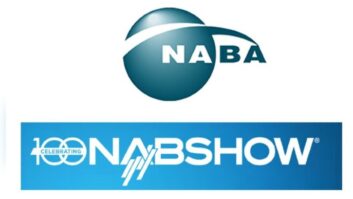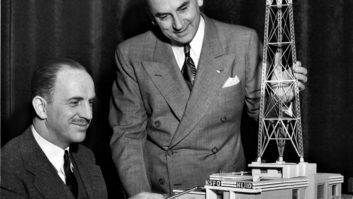Many people ask me why I get involved in industry committees to work on technical documents and standards. After all, it’s mostly volunteer work, unless your boss says he or she will sponsor you — nobody I know has ever gotten rich participating in these committees. And participation very rarely leads to a better job.
So why do it?
Currently I chair the Metadata and Streaming Working Group of the National Radio Systems Committee. Here I get to work with leaders in the industry. I have learned so much from participants from so many companies as Orban, Dolby, Cumulus, Xperi and others.
It is a privilege to work with these industry greats. We are currently working on a “Metadata for Streaming Audio Handbook” that will be released soon.
Also, I co-chair the Audio Engineering Society’s Technical Committee for Broadcast and Online Delivery. We have published recommended practices for controlling loudness for streaming audio and video. These documents have been well received by the industry and have been elevated to standards practice. The work is recognized by industry professionals worldwide.
The NRSC and AES are only two of the professional organizations that might benefit from your energy and ideas. There’s the national Society of Broadcast Engineers, the IEEE Broadcast Technology Society … I’m betting you can think of a lot more.
Being involved is about more than putting your name on a membership list. Be active. Make your interest to the leadership known. Chances are very good they have a need that you can help fill.
Yes, this type of work requires a time commitment. But it makes you feel good — it is a way of giving back to your industry and leaving your mark.
Your involvement also shows employers how committed you are to the industry.
And the educational factor is major! You learn so much as participants discuss various issues and how to solve them. Usually, nobody tries to be the smartest in the room. Everybody speaks respectfully to the others. Rarely does a discussion get heated. The result is that you learn from everyone’s vast experience. It only helps you do better at your job.
I always say that engineers don’t have to know everything, but they need to know how to get an answer and present it.
It’s also good for your career. Being a member of industry-leading committees not only puts your name in front of other participants, you start building your own contact list. Years ago, an engineer told me to guard my Rolodex, and he was right. Yes this is Networking 101, but with this great power comes responsibility. Your contact list is a lifeline to answer questions, develop projects and make career contacts.
Another big benefit of being on these committees is instantly knowing the accepted practices and promising compliance to your employer. If your work is the accepted practice, you will gain respect by your peers and your employer will show it off to others. This will not only market you but it will help evangelize for your group’s work. Sometimes it is good to be a leader.
And it’s also just fun to work toward a shared goal with smart people who have common interests.
I encourage you to join your industry groups, become involved.












